Central Coast gets more baited shark drumlines to help protect swimmers
Fifteen baited drumlines designed to help protect swimmers from potentially dangerous sharks are being set each day between MacMasters Beach and Forresters.
Central Coast
Don't miss out on the headlines from Central Coast. Followed categories will be added to My News.
Baited drumlines designed to help protect swimmers from potentially dangerous sharks have been set on the Central Coast.
Fifteen lines have been anchored 500m from shore each day since March 12 between MacMasters Beach and Forresters to catch so-called “target” species — Great White, Tiger and Bull sharks.
When a shark is caught on a SMART (Shark Management Alert in Real Time) line, Department of Primary Industries (DPI) scientists or contractors are alerted. They then place an electronic tag on the shark that allows its movements to be tracked by a network of 21 listening stations along the NSW coast.
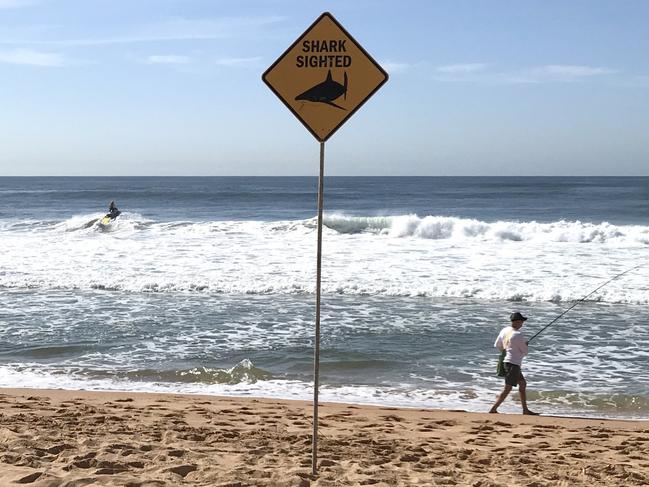
After being tagged, the sharks are released 1km offshore.
If a tagged sharks comes close to a listening post swimmers are alerted to its location via the Sharksmart App.
The drumlines come as the state government ramped up shark response measures in the wake of a fatal attack at Little Bay, in Sydney’s south, on February 16.
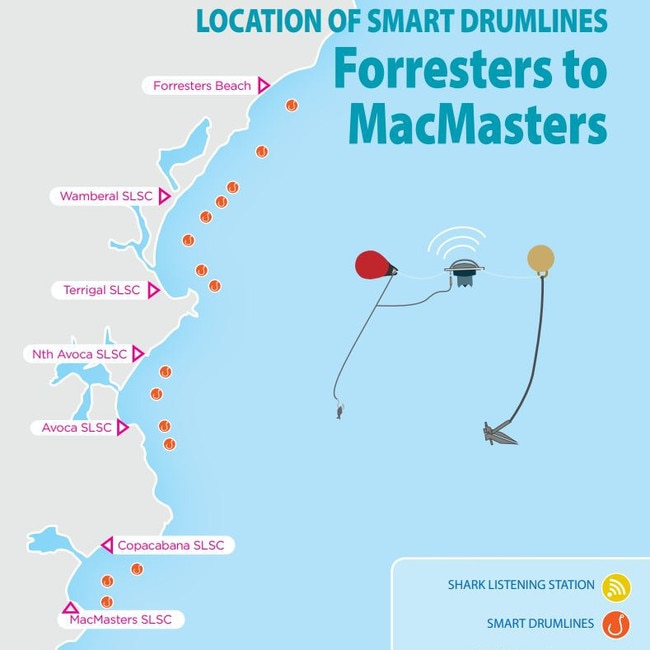
Simon Nellist, 35, was attacked by a shark estimated to be between 4-5m long, while swimming across the bay at about 4.30pm.
North Narrabeen and Narrabeen beaches were closed on Tuesday and “Shark Sighted” signs erected while a council lifeguard patrolled on a jet ski. In early March a 3m shark was spotted off Manly Beach.
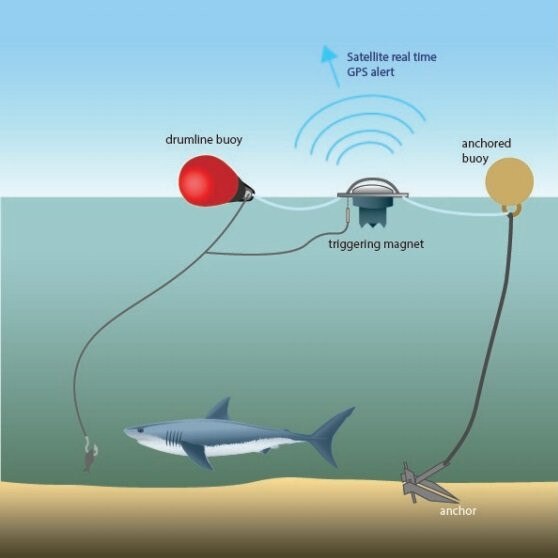
The government announced last week it was spending an extra $4.4m on a package of shark attack mitigation measures including an expanded drum line rollout.
Primary Industries Minister Dugald Saunders said shark attacks were always possible, regardless of the technologies deployed, “but it was critical for the government to do everything possible to reduce the risk”.
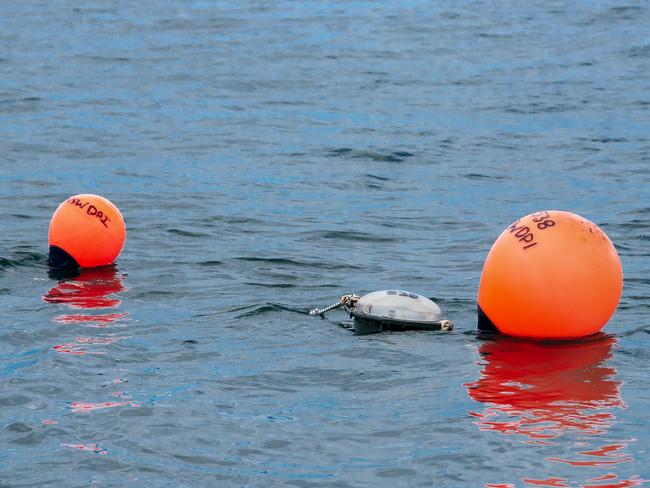
“The tragic event at Little Bay earlier this year was another reminder of the threat posed by sharks and the need to take steps to ensure we can coexist as safely as possible,” Mr Saunders said.
Critics say the drumlines also catch and kill endangered, non-target shark species.
In 2019, authorities conducted two, three-month, drum line trials on the northern beaches.
Between September 1 and December 1, 2019, five Great Whites and two Tigers were hooked, tagged and released, including a 2.8m Great White off Palm Beach and a 1.71m Great White off Whale Beach. Five non-target species, a Bronze Whaler and four Shortfin Makos, were also caught. One Mako died.
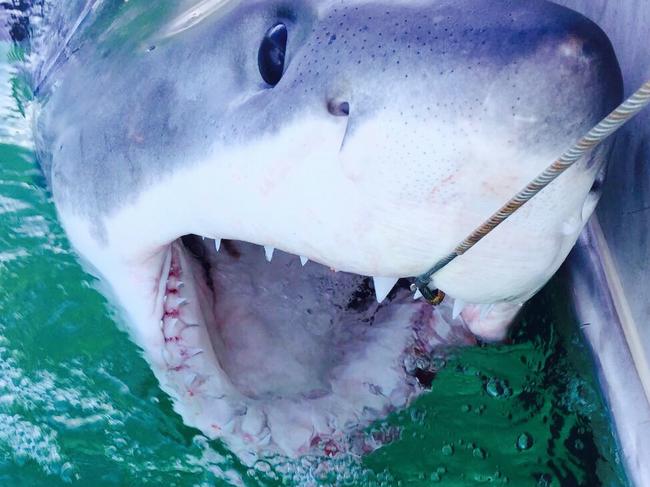
In the trial from February 10 to May 11, 2019, two Tiger sharks were hooked and released including a 2.5m Tiger off Dee Why Beach. Thirteen non-target species were caught. One Smooth Hammerhead died.
This week the DPI confirmed that from March 12 to June 30, 30 SMART drumlines would be deployed daily from MacMasters Beach to Forresters, weather permitting, as part of the government’s 2021/22 Shark Management Program.
The locations of the SMART drumlins can be found on the SharkSmart website.
A spokeswoman said all target sharks caught and tagged on SMART drumlines on the Central Coast were reported on SharkSmart Twitter and via the app.
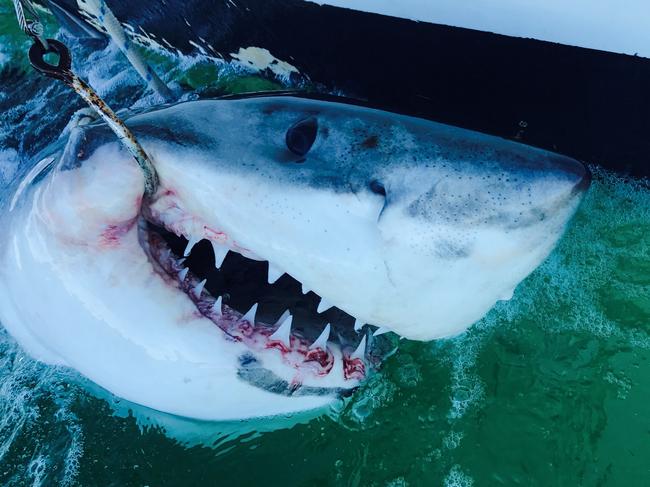
Swimmers have also been reminded that all shark nets off the coast would be removed on April 30. Shark nets are in place from September 1 to April 30 each year.
“The SMART drumlines will remain in place after the nets have been removed,” the spokeswoman said.
Northern Beaches Council said that as well as the drumlines, its lifeguards closely watch and monitor for sharks.
“If a shark is sighted, our lifeguards will close the beach, clear the water and use rescue craft and drones to move the shark on,” it said in a message to ratepayers.
“We encourage you to be shark smart, follow shark safety advice, take care swimming at dusk or dawn, and always swim at patrolled beaches between the flags.”





